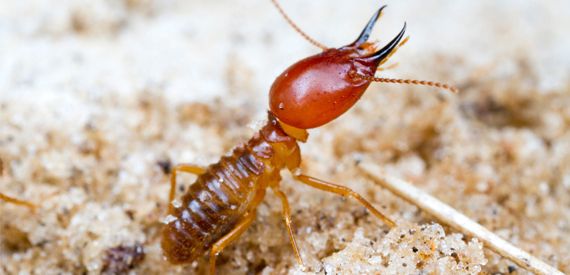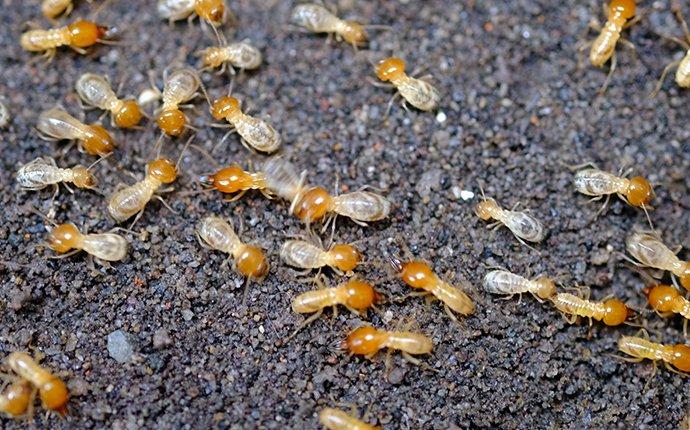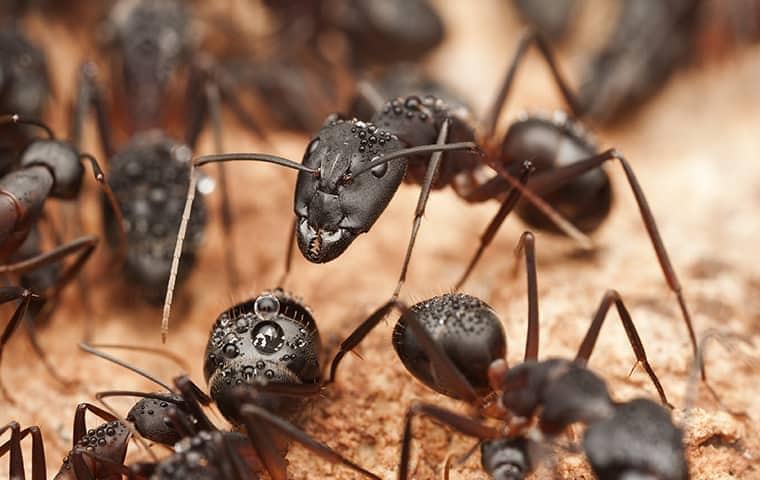Ecological Effect of Parasite Control: Balancing Efficiency With Sustainability
The environmental impact of pest control is an important concern that calls for a delicate balance between accomplishing performance in ensuring and managing insects sustainability of our environments. As we aim to shield our crops, homes, and wellness from the risks posed by bugs, the approaches we utilize can inadvertently damage the atmosphere. From the usage of hazardous chemicals that seep right into our soil and water to the unintentional effects on non-target types, the repercussions of standard insect control methods are far-reaching. However, there are arising approaches that supply wish for an extra lasting approach to pest administration. These services not just purpose to deal with the prompt insect troubles yet likewise think about the lasting health of our world.
Dangerous Chemicals in Parasite Control
The use of unsafe chemicals in parasite control presents considerable environmental and wellness threats that call for cautious factor to consider and reduction methods. Pesticides, pesticides, and herbicides are typically made use of to remove parasites, but their widespread application can cause unplanned effects. These chemicals can contaminate soil, water sources, and the air, impacting not just the targeted parasites yet additionally useful bugs, wild animals, and people.

To attend to these risks, incorporated pest monitoring (IPM) techniques are being advertised as an extra sustainable alternative. IPM involves a mix of techniques such as biological control, habitat manipulation, and the targeted use of pesticides as a last hotel (ant control mathews nc). By embracing a holistic approach to pest control, we can decrease the ecological and health and wellness effects related to unsafe chemicals while efficiently managing pest populaces
Effect On Non-Target Variety
Taking into consideration the unintended effects of pest control methods, the effect on non-target species is a crucial facet that needs comprehensive assessment. While parasite control procedures intend to target certain insects, other microorganisms in the community might be unintentionally affected. Non-target varieties, including advantageous bugs, birds, creatures, and even plants, can endure indirect or straight harm from chemical applications or organic control methods.
Pesticides can have deadly or sub-lethal effects on non-target types. Pesticides made to fight a particular bug pest might hurt pollinators like bees or all-natural predators such as ladybugs. In addition, chemical residues can collect in the setting, influencing non-target organisms over time. In a similar way, biological control representatives, otherwise species-specific, can position risks to unexpected targets, disrupting the eco-friendly equilibrium.
To alleviate the effect on non-target species, incorporated parasite management (IPM) techniques that highlight a holistic method to pest control are suggested. These approaches prioritize the use of eco pleasant practices, reducing injury to helpful microorganisms while efficiently taking care of pest populaces. Conducting complete threat analyses and monitoring the outcomes of insect control efforts are crucial action in protecting non-target species and advertising total community health and wellness.
Dirt and Water Contamination
Unintentional environmental repercussions of bug control approaches extend beyond affecting non-target varieties, with significant implications for dirt and water contamination - termite control. Chemicals, herbicides, and chemical fertilizers made use of in pest control can seep right into the soil and infect groundwater, positioning a hazard to both aquatic and earthbound ecosystems.
Water contamination is an additional vital issue connected with parasite control methods. Overflow from farming fields treated with pesticides can bring these chemicals right into nearby water bodies, impacting water organisms and water quality. Impurities in water sources can have significant consequences, affecting not only water life yet also human wellness via the consumption of polluted water or marine microorganisms. To mitigate soil and water contamination from parasite control activities, integrated bug monitoring techniques that focus on sustainability and decrease chemical inputs are vital.
Air Air Pollution From Chemical Usage
Exposure to air-borne pesticides throughout agricultural applications presents a considerable concern for air contamination control actions. They can volatilize into the air and form unstable organic substances (VOCs) and other air-borne contaminants when chemicals are sprayed onto plants - ant control services. These chemicals can add to the development of ground-level ozone, a major element of smog that can have detrimental impacts on human health, plant productivity, and general air top quality. Furthermore, chemical drift, where pesticides are brought by the wind to unintentional locations, can lead to the contamination of close-by ecosystems and water bodies.

Approaches for Lasting Parasite Control
In the realm of agricultural ant control high point nc practices, executing sustainable bug control methods is extremely important for preserving eco-friendly equilibrium and guarding plant returns. Lasting bug control highlights the usage of eco-friendly techniques to take care of parasite populaces properly while minimizing harm to non-target organisms and environments. Integrated Bug Administration (IPM) is a commonly embraced technique that incorporates organic, cultural, physical, and chemical control approaches to attain lasting parasite monitoring options.
One secret method in lasting parasite control is advertising biodiversity within agroecosystems. By improving all-natural opponents of insects, such as parasitoids and predators, farmers can reduce the demand for artificial pesticides. Plant rotation and diversification are also reliable strategies to disrupt pest life cycles and develop less desirable problems for insects to prosper. In addition, using pest-resistant plant ranges and employing strategies like trap chopping can help in reducing pest stress without depending greatly on chemical interventions. Ultimately, by incorporating these sustainable parasite control strategies, farmers can attain a balance in between pest management performance and environmental stewardship.
Conclusion
To conclude, the ecological impact of parasite control techniques must be meticulously considered to stabilize effectiveness with sustainability. Unsafe chemicals utilized in parasite control can cause dirt and water contamination, air contamination, and harm non-target types - termite control. It is crucial to carry out lasting insect control approaches to reduce these adverse impacts on the atmosphere and advertise a much healthier ecological community for future generations
By adopting a holistic method to pest control, we can reduce the environmental and health and wellness influences linked with hazardous chemicals while efficiently handling pest populaces.

To reduce the air pollution triggered by chemical usage, it is vital to take on incorporated parasite monitoring strategies that prioritize the use of non-chemical insect control approaches, such as plant rotation, natural killers, and resistant crop selections. Sustainable insect control emphasizes the use of ecologically pleasant methods to manage bug populaces effectively while lessening injury to non-target microorganisms and environments. Integrated Parasite Management (IPM) is a widely embraced technique that incorporates organic, cultural, physical, and chemical control techniques to accomplish lasting insect monitoring solutions.